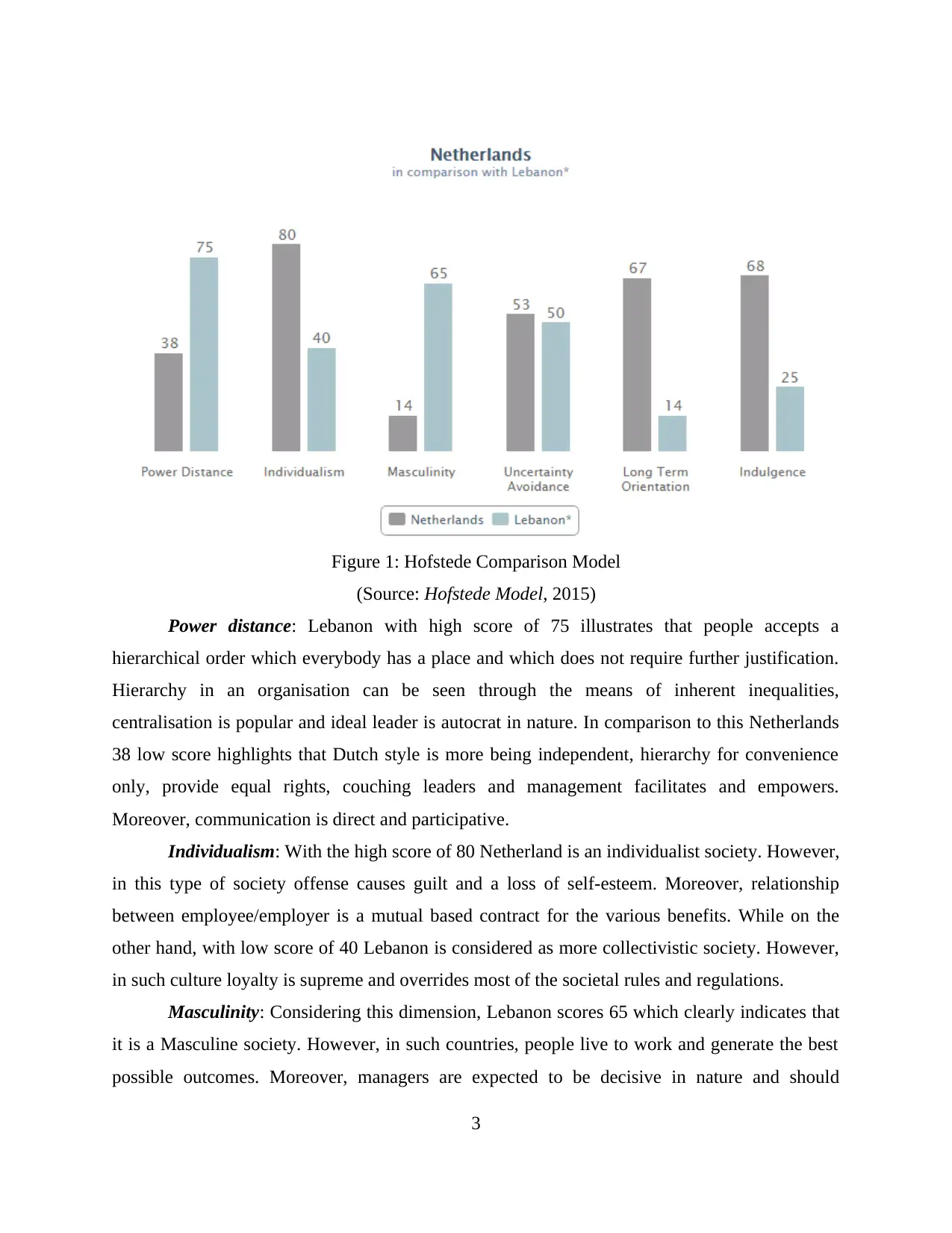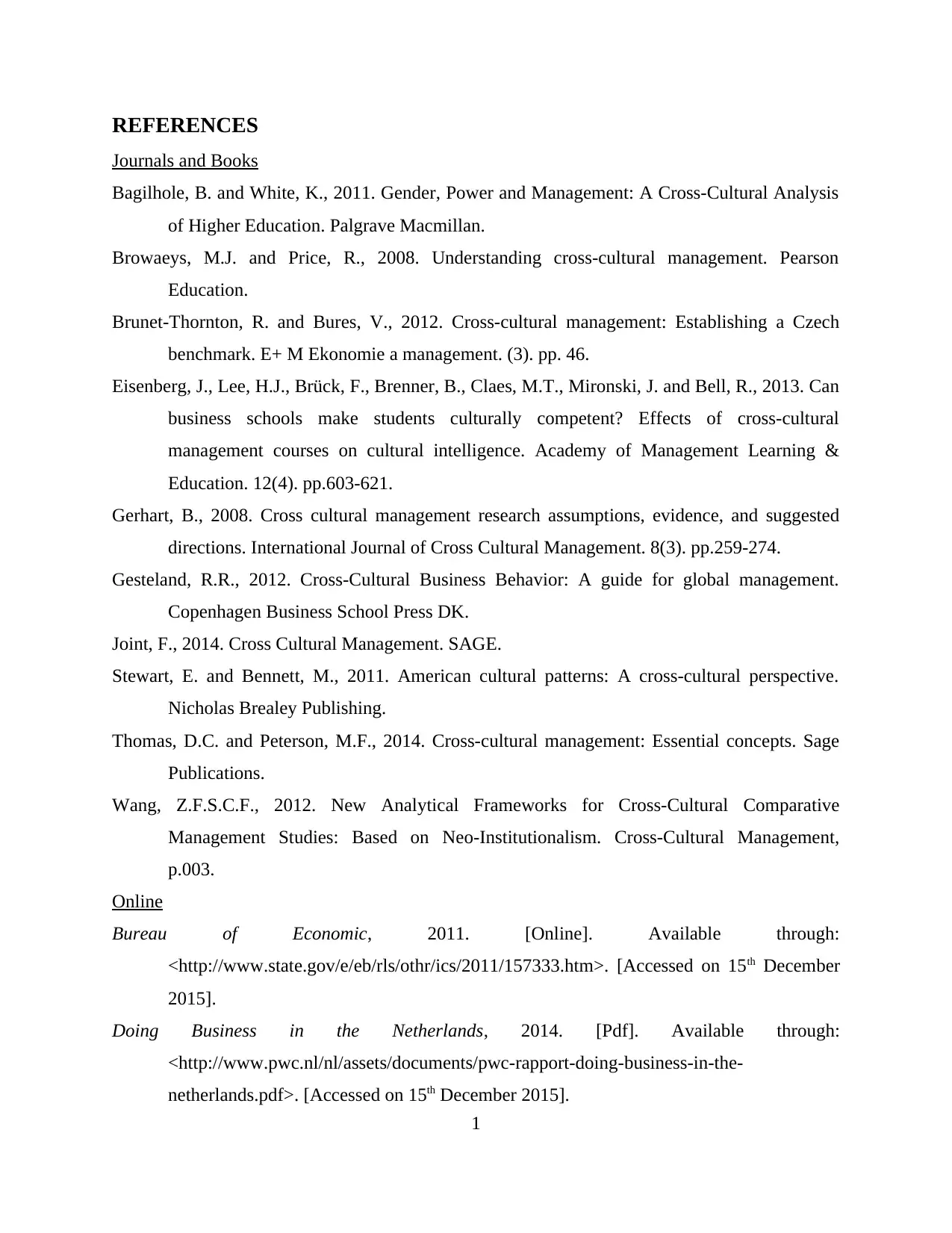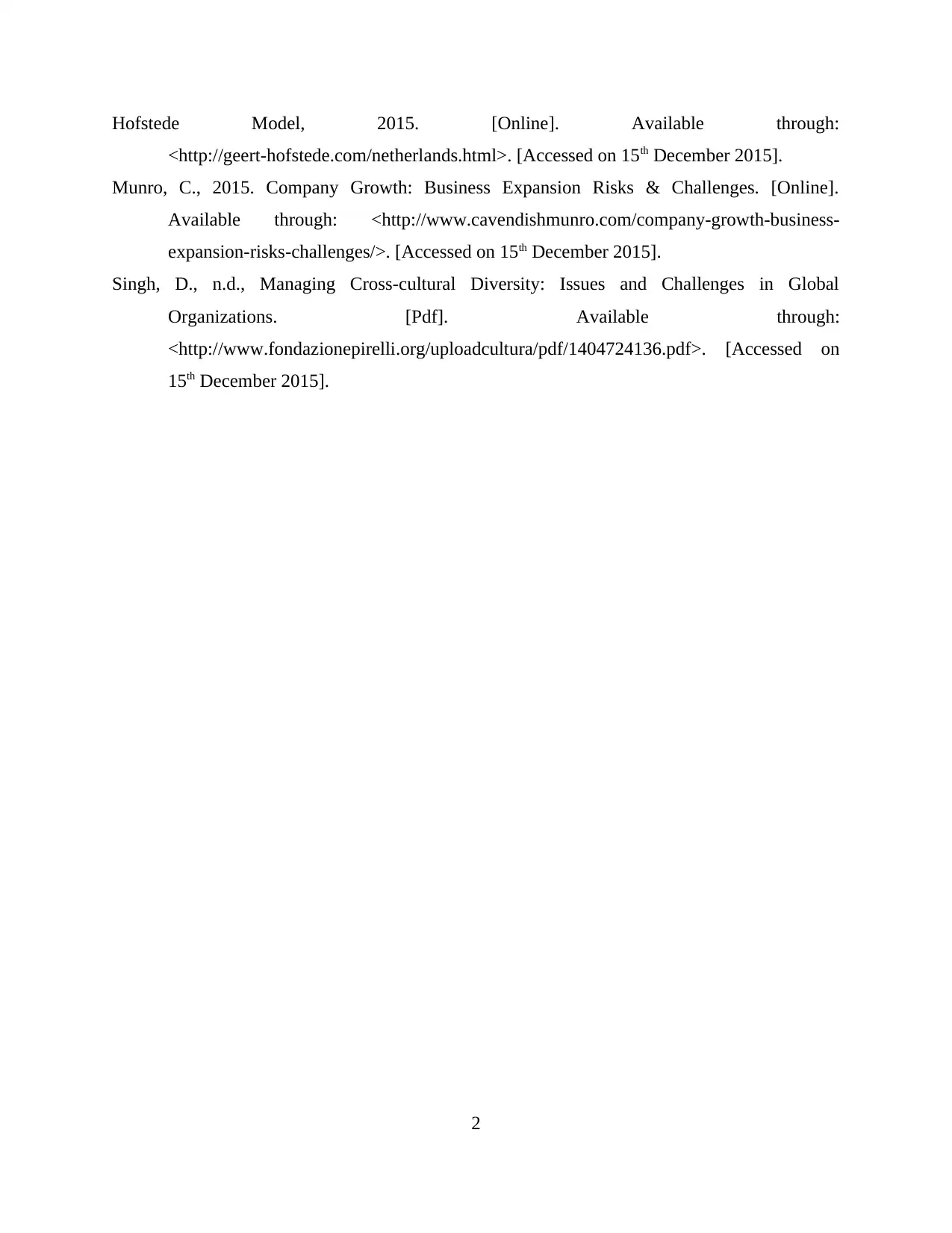The Hofstede Model is used to analyze the cultural differences between Lebanon and Netherlands, specifically in terms of power distance, individualism, masculinity, uncertainty avoidance, pragmatism, and indulgence. The results indicate that Lebanon has a high score for power distance (75), individualism (40), and masculinity (65), indicating a hierarchical society with strong emphasis on work, competition, and performance. In contrast, the Netherlands has low scores for these dimensions, indicating a more egalitarian society that values independence, participation, and balance between personal and professional life. The study highlights the importance of understanding cultural differences in international management, particularly when expanding business operations from Lebanon to Amsterdam. It also emphasizes the need for lady managers to adapt their leadership style to suit the local culture, taking into account the potential challenges and risks involved.
![[object Object]](/_next/static/media/star-bottom.7253800d.svg)
![[object Object]](/_next/static/media/star-bottom.7253800d.svg)







